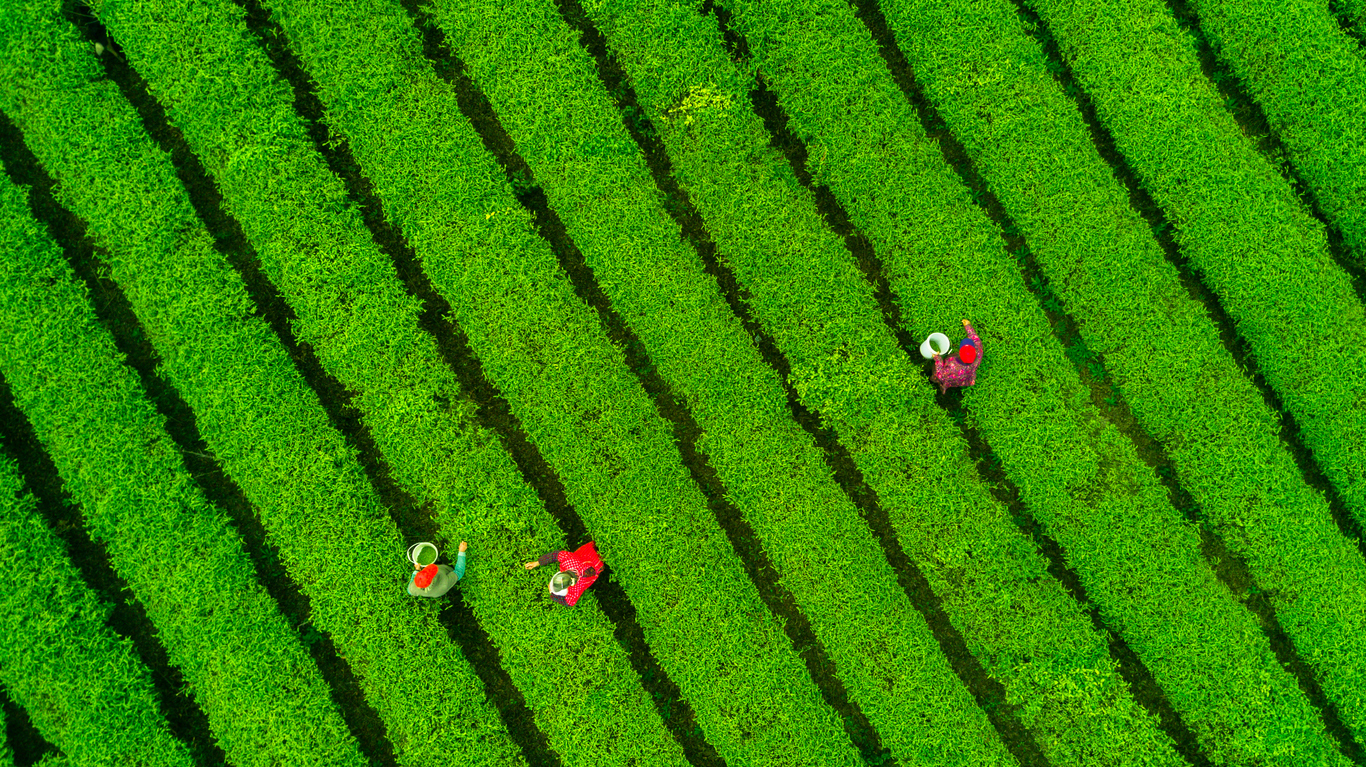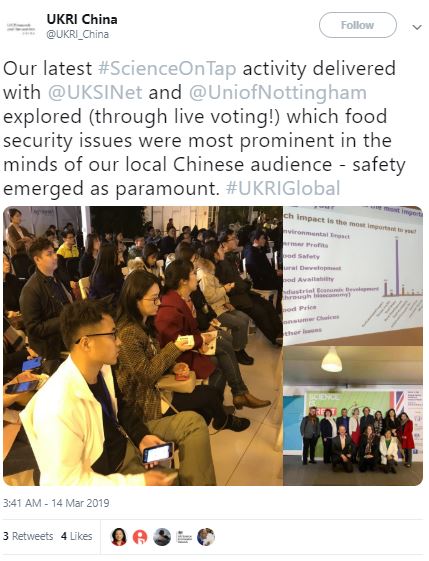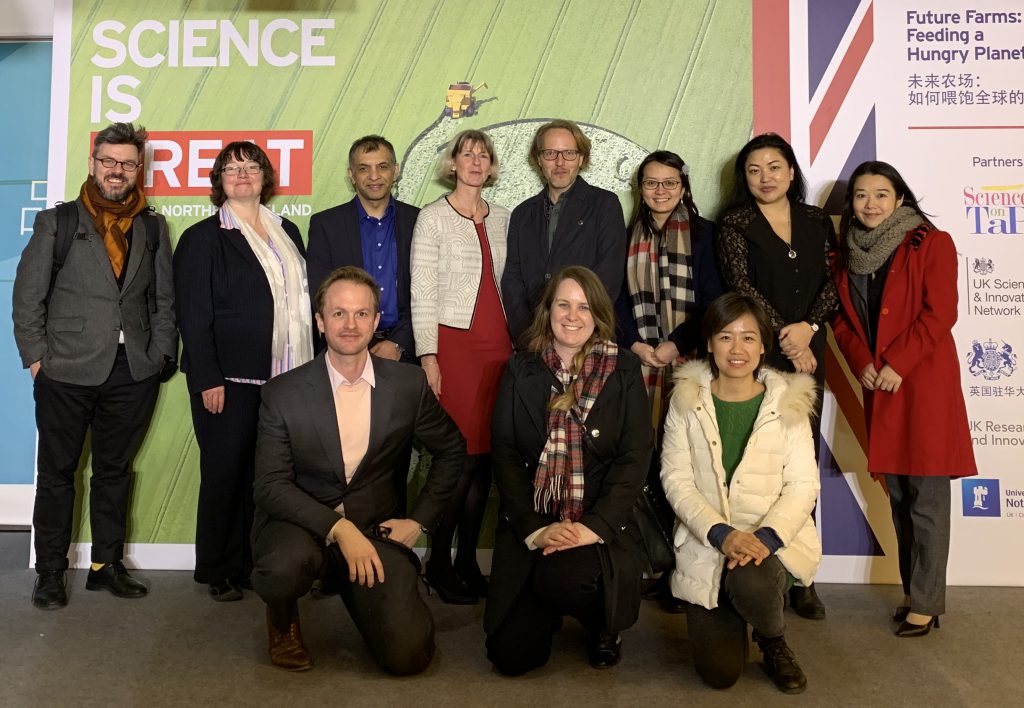
April 29, 2019, by Rob Ounsworth
Future Food widens debate on bioscience and ethics at UKRI China showcase
By Min Rose
The University’s Future Food Beacon continues to build strong partnerships with China. Supported by the University’s Asia Business Centre, a plant scientist, an evolutionary geneticist and a bioethicist from the Future Food Beacon gave a talk at UKRI China’s Science On Tap at the Chinese Academy of Agricultural Sciences in Beijing.
This UKRI China-operated event network has huge media impact, with livestreaming reaching over 1.14 million viewers across 32 provinces.
Science on Tap supports high-profile UK academics and innovators visiting or working in China to deliver fun, accessible and informative public lectures on topics relevant to UK-China science and innovation collaboration. Agri-tech and food security is one of the priority topics of particular strategic interest.
Future Food’s vision is to create a Sino-UK Innovation Hub as the leading centre for implementing effective knowledge transfer between the two countries.
Engaging with the public is a vital tool in Future Food’s China strategy, helping to promote our research vision and demonstrate our commitment to China. It also helps to stimulate public debate on important issues.
At the event, Professor Zoe Wilson, Dr Kate Millar and Dr Levi Yant of the School of Biosciences walked the audience through a journey of over 11,000 years of agricultural resilience scenarios and demonstrating how our knowledge from the past, combined with modern science and cutting-edge technologies, can help create a resilient future.
 An audience of 70-plus attended including key agri-industry stakeholders, students, professors, farming association representatives and the media enjoyed presentations on GMO crops, crop and animal breeding and the ethics of food science, with interactive content including 3-D printed enlargements of crop and root structures and voting on ethical issues in food production.
An audience of 70-plus attended including key agri-industry stakeholders, students, professors, farming association representatives and the media enjoyed presentations on GMO crops, crop and animal breeding and the ethics of food science, with interactive content including 3-D printed enlargements of crop and root structures and voting on ethical issues in food production.
The talks introduced the importance of ethics in bioscience to tackle food security and the interactive voting device inspired questions from the audience on sensitive issues such as GM food.
Coverage in China
The event’s coverage included reports in mainstream science media and a detailed report in Science and Technology Daily, a national newspaper which was entitled ‘How to Feed the Hungry Planet – Science and Ethics, neither can be absent’.
The article highlighted the importance of ethics represented by Dr Millar, quoting Chinese Academician Professor Ren Jizhou, “there is a lack of ethics knowledge among agricultural workers, insufficient attention to social and human health and safety, with problems such as excessive application of chemical fertilizers and pesticides, as well as high-tech risks such as food safety issues and genetic modification, all of which need to be ethically addressed.”
Dr Millar was delighted with the coverage in China and its acknowledgement of the central role of ethics in research. She said: “It shows how these collaborations can work; I am looking forward to further opportunities to develop these types of ethics engagement activities.”
Min Rose is Deputy Director, Knowledge Exchange Asia, with the University’s Asia Business Centre.
No comments yet, fill out a comment to be the first


Leave a Reply